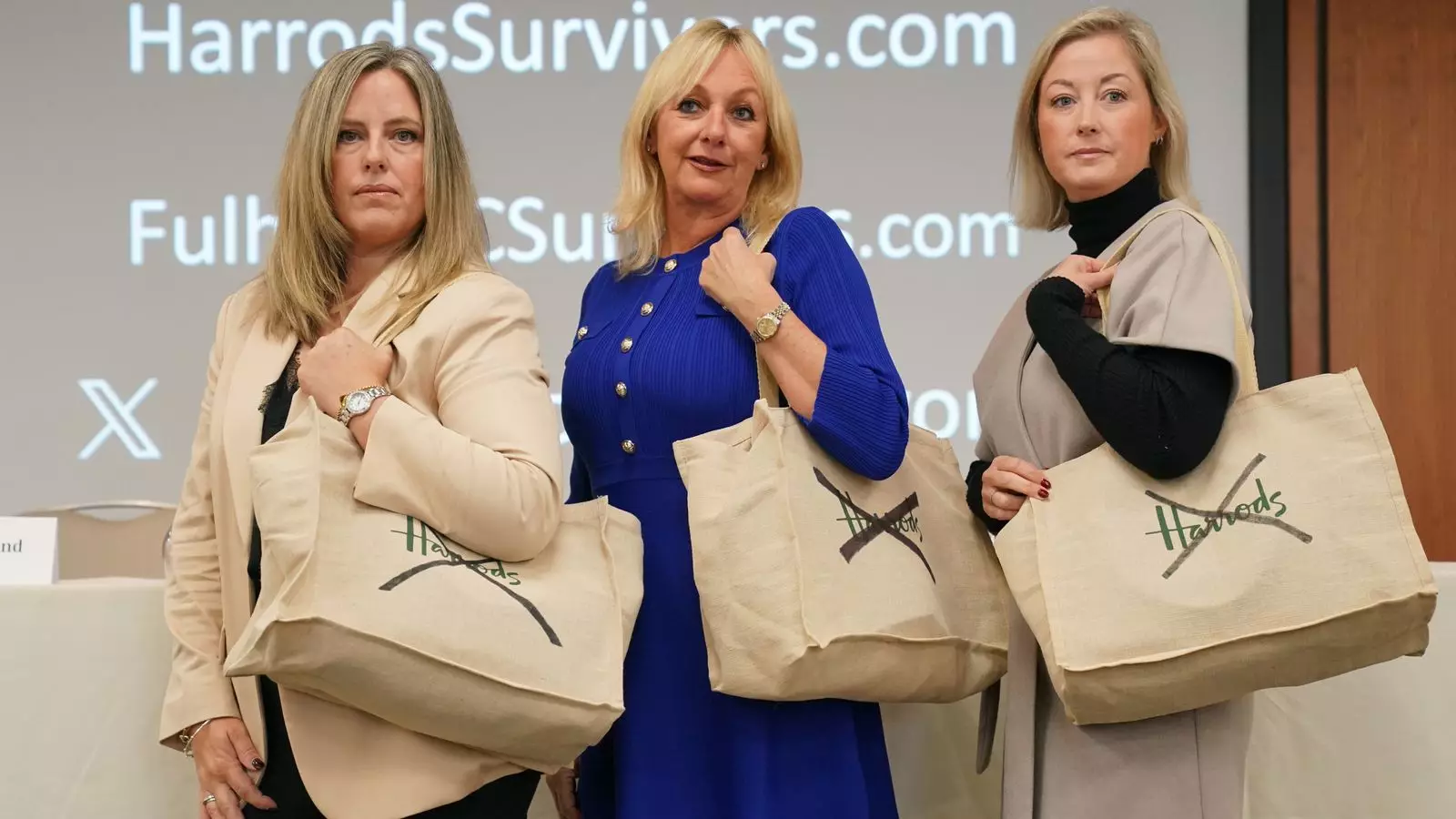In a shocking development, the Justice for Harrods Survivors group has reported that over 400 individuals have reached out to them with claims related to alleged abuses by the late Mohamed al Fayed. This encompasses not only prospective victims but also witnesses who may shed light on the harrowing experiences linked to the erstwhile owner of the iconic Harrods department store and the Fulham Football Club. The public response follows a controversial BBC documentary that illuminated numerous allegations against al Fayed, ranging from sexual misconduct to serious criminal offenses like rape and abuse of minors.
The surge in inquiries points to a troubling narrative about al Fayed’s legacy. The alleged victims emanate from various sectors, including employees from Harrods and Fulham FC, suggesting that these institutions may have harbored a culture of silence enabling such behavior. Dean Armstrong KC, one of the solicitors representing the survivors, has voiced concerns about the scale and breadth of these accusations, indicating a systemic issue that transcends individual victims.
During a press conference in London, Armstrong revealed that the survivors group has officially initiated legal action, beginning with the submission of a letter of claim against Harrods on behalf of one victim. He emphasized that this initial step is merely a precursor to what could be an avalanche of legal actions as more individuals come forward. The legal strategy appears to focus not only on seeking justice for the victims but also on holding the institutions that might have facilitated or ignored such abuse accountable.
It’s notable that Armstrong mentions the potential for hundreds of additional claims to follow. This is a pivotal moment for the survivors, signaling a collective effort to break the silence that has historically surrounded such abuses. The legal ramifications could extend beyond just the individual cases, as they may uncover a broader culture of complicity within the organizations that supported Fayed’s enterprises.
Mr. Drummond, another key figure in the survivors group, has aptly characterized the scale of reported abuse as “industrial.” This alarming description resonates deeply with the essence of the allegations, suggesting a systemic failure that enabled such acts to occur repeatedly and unchecked. Drummond’s assertion reflects not only the gravity of the situation but also a critique of the organizational structures that might have concealed these actions for years.
The allegations span a broad geographic spectrum – primarily from the UK but also touching upon accounts from the United States, Canada, Australia, Asia, and across Europe. This international dimension raises critical questions about the nature of accountability and oversight in businesses that operate in multiple jurisdictions. It challenges institutions to rethink their internal controls and sexual harassment policies, especially in environments where hierarchical power dynamics can create risks for abuse.
Among the individuals who have come forward is Bianca Gascoigne, daughter of former footballer Paul Gascoigne, who has shared her own traumatic experience of grooming and assault during her teenage years while employed at Harrods. Additionally, other prominent figures, such as Ronnie Gibbons, ex-captain of Fulham Women, have also brought to light their own allegations of assault. These testimonies serve to not only humanize the statistics but also emphasize the real-life repercussions on survivors.
The mental and emotional toll on survivors is unimaginable, as they confront the insecurities and stigmas that accompany such experiences. The suffering transcends mere allegations; it affects victims’ lives, careers, and relationships. Equally disheartening is the reality that many survivors may remain silent, fearing backlash or disbelief, thus perpetuating the cycle of abuse.
In light of these revelations, it is imperative for organizations like Harrods and Fulham FC to reassess their governance and ethical frameworks. The response from Harrods, which has disavowed any connection to the alleged abuses committed during Fayed’s tenure, must be more than a statement of indignation. It necessitates comprehensive action to ensure that such systemic failings are rectified, and that victims feel safe to come forward without fear of retribution.
The ongoing investigation into these claims demands vigilant oversight, societal awareness, and proactive systemic change. The Justice for Harrods Survivors group is at the forefront of this fight for accountability, urging a community to rally for justice, not just for the individuals impacted, but for the integrity of corporate culture as a whole. These developments should catalyze widespread discussions about sexual abuse in institutional settings, driving home the urgent need for reforms that prioritize the safety and well-being of individuals above all else.


Leave a Reply